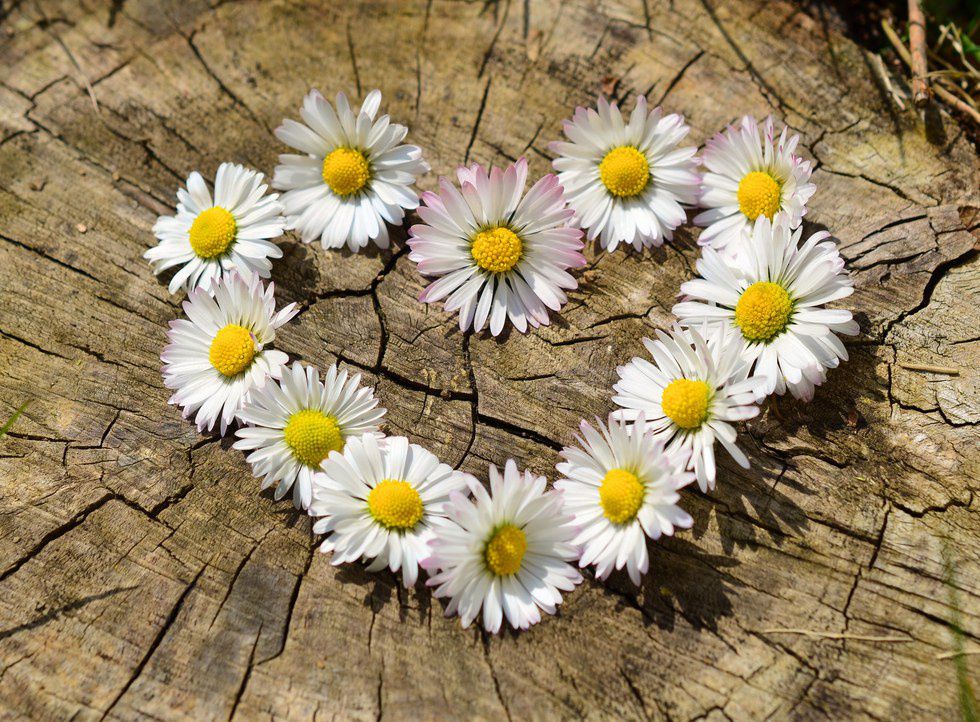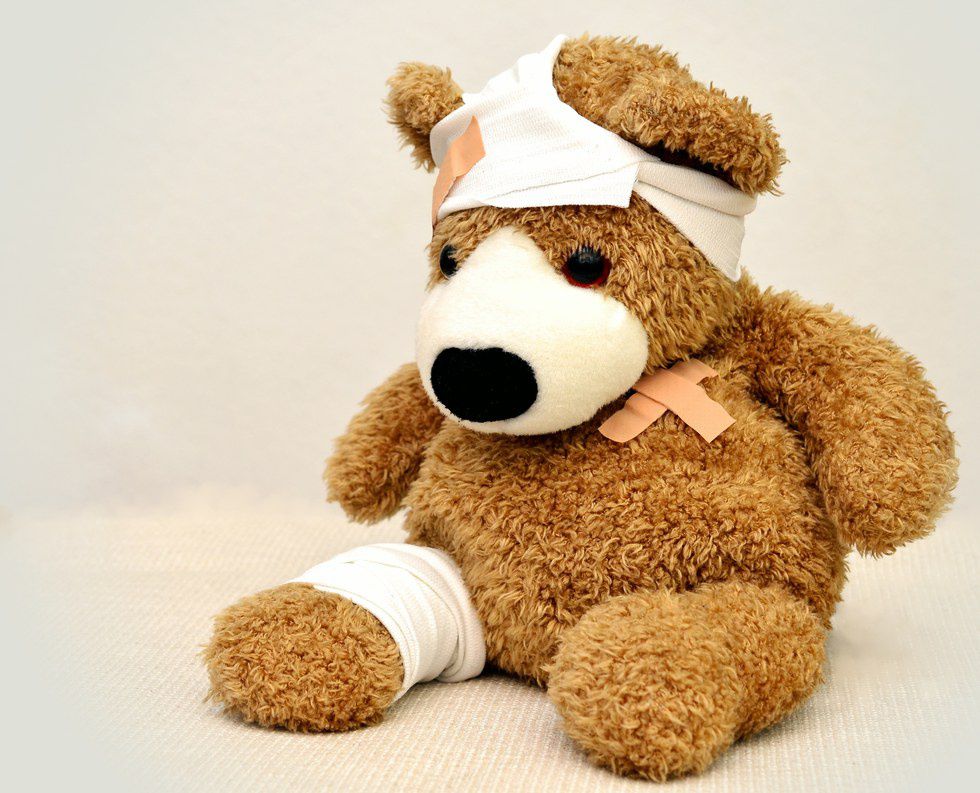It is nothing new to say toxic relationships are to be avoided. We all have that friend who says their last relationship was "toxic." We have seen the 500 articles floating around the internet warning of a toxic relationship and how to stay an entire 100,000 miles away from the people who show the warning signs.
What nobody talks about is how easy it is to get sucked up into these relationships. Without knowing it you soon sacrifice your needs, happiness, and voice for this one person. If someone were to approach you about getting into a toxic relationship you would say, "Me? I would never get into a situation like that. I am smarter than that and I care about myself." We would all like to think that, right? Maybe it has nothing to do with being smart but everything to do with the awareness we lend to ourselves and our feelings. I know in the past I have said lots of things along the lines of, "I would never_____" and then one day when I wasn't looking... I somehow found myself in the exact situations I said I would never be a part of.
What is a toxic relationship? We find ourselves drawn to the person like a fruit fly to a ripe banana. We find ourselves thinking we can only be happy with this one person... that nobody could ever be as good as them. We begin holding high expectations and beliefs about this person - forgetting they are actually just human - not some perfect god from another planet. Our perceptions become warped into thinking everything is great. We don't see the bad behavior. We excuse them as "normal" or stand up for the person giving them some sort of excuse. "They are trying." "She was tired." "He loves me."
We don't see any of this happening, until we take a step back. Until we are no longer emotionally involved directly in the relationship. Then BOOM - it hits like a rock - we were walked on the entire time... and in the process not only did we become really miserable, but we lost ourselves. We lost ourselves.
So how do we prevent getting in these situations? People will tell you, "just don't get in a toxic relationship." Okay, well that is not incredibly helpful because it very vague. It is like preparing for a fire when you least expect it.
10 Factors To Keep In Mind:
1. How Do You Feel When You Are With This Person?
The first step to identifying a toxic relationship is being aware of your feelings and motives. How do you feel when you spend time with this person? Do you leave feeling good or bad? Do you have fun? Do they listen to your needs? Do they offer advice? Are they there for you when you need them the most? Do you have similar expectations for each other? If not, are yours too high or too low? Start building awareness. Notice how you feel when spending time with this person. When we become too attached, the reality of what is actually happening can become intertwined with our feelings. A good way to make sure you are not responding purely from emotion is to make a chart. List the facts on one side and how they made you feel on the other. For example, Fact: Lizzie laughed at me when I told her I am struggling with my weight." How it made me feel, "I felt sad and vulnerable."
2. Be Clear About Your Needs
If you have tried the above, sometimes miscommunication happens. In other words, the other person does not have a clear idea of our boundaries or needs. When this happens, a person can hurt us without actually meaning to. If the relationship is meant to last, the person will be open to hearing your needs and respecting them. This can be tricky. Once a relationship is established, it takes time for the relationship to transition if it needs to go that way. If the person is willing to hear you out and make changes, gives them a chance. If you have already established some kind of boundary or expectation, it will take time if you now want an aspect of your relationship to change. BUT - if things don't begin to change, it is time to consider if this person is a positive aspect to your life.
3. Let Yourself Feel Hurt
In other words - let yourself process your emotions. Let yourself cry, be angry, scream... whatever gets your emotions out. It is important for ourselves to acknowledge what we are feeling. This gives us a chance to move forward. It is also important to not let ourselves dwell in uncomfortable feelings. Set a time limit if you need to cry - for example, no more than 20 minutes. Give yourself something to look forward to after. For example, get a good cry... and then go get ice cream with your best friend.
It takes practice to find what works. For me personally, writing is a great outlet. I will write down my feeling at the top of the page, followed by the event that happened, wise mind (acknowledging my feelings and why they are valid), and then finding a plan to move forward - an aspect I can control. This helps me realize my feelings and the situation are temporary. One day I won't be hurting anymore, but I have to give it time.
4. Love Yourself
Loving yourself means standing up for yourself. It means putting your foot down when you are not okay with something. It means walking away from a situation that makes you uncomfortable. It is putting your needs first in order to be the happiest and healthiest version of yourself possible. If someone does not respect your needs and boundaries, you have every right to walk away. You deserve people who make you happy. This means people who respect your needs and limits too.
5. Acknowledge That Walking Away Does Not Mean You Don't Care
I have had to walk away from several relationships because they were not working for me. This was not to be spiteful, it was simply because we were both going in two different directions.. to the point where it was hurting me as a person. Sometimes walking away means you love the person. You will only hurt yourself by spending time with someone who no longer makes you a better and happier version of yourself. People change and it is okay. It is part of life and growing.
6. Be Open To New Opportunities
Letting go of the past means being open to new opportunities that come your way. Don't compare new people you meet to your last best friend or boyfriend. Try something you thought you would never like. Who knows, you might even learn something new about yourself.
7. Cut Them Out Of Your Life
In order to get over someone, you need space away from them... at least for a little while. It takes time to process what happened. In order to grow, we sometimes have to remove the very people and situations that prevented us from growing in the first place. Delete them off social media. Delete their number. The less you think about them, the faster you will heal and realize what you need in order to grow. This does not mean you will never be friends again, it means you are willing to let go in order to grow.
8. Take Care Of Yourself
Getting over someone takes time - whether it is a friendship or a romantic relationship. This means incorporating lots of coping skills! In other words, doing things that make you happy. Advice I received once from someone who inspires me was to give yourself two goals a day. One goal is an obligation you have to fill (ex. going to work) and another want you to do (going to the pumpkin patch with your roommates). This way, we are creating a healthy balance in our lives. We are doing what we have to do, but letting ourselves the freedom to relax and take a break. We all need a break.
9. Base The Value of Your Relationship Off Of Facts
Make a pros and cons list. I am not even kidding. If you are going back and forth about the quality of your relationship, create a visual representation. What is important in doing is separating fact from emotion. Make sure your pros and cons are based on factual evidence and events - not the way you felt in a specific situation. For example:
Fact: Zoe does not give me full attention when I need to talk about something important.
(Incorrect example of a fact): Zoe wants to hurt me so she purposely ignores what I am saying.
10. Evaluate Your Core Beliefs
Sometimes our core beliefs define what kind of people we allow ourselves to form relationships with. This can be a good or bad thing. Figuring out what you believe about yourself is important in forming relationships with other people. By analyzing our core beliefs, we find out how we really view ourselves. We can realize the good things we think of ourselves, and the not so good things we think of ourselves. Awareness to these beliefs can only help us know ourselves better, and accommodate us to make ourselves the best person we can be.





















































